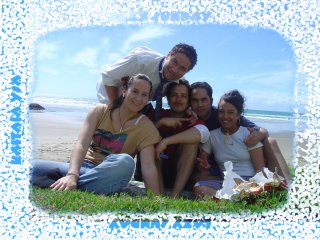At last week’s meeting of the Northland Conservation Board a powerpoint by Vince Kerr regarding the Northland Regional Council’s proposed Aquaculture Management Areas (AMAs) held everyone’s attention. What’s an AMA? It’s an area specifically created to allow for marine farms. Anyway Vince showed a photo, taken around 1885, titled ‘All in a Day’s Work,’ showing a man covered in and surrounded by fish.
Since 1885 90% of the ocean’s biomass has disappeared, and today unique sites, like the Mimiwhangata Reef in Ngati Wai as well as Doubtless Bay and the Nukutaurua Reef in Ngati Kahu, are still being wasted. Our worry is that, if AMAs are added to the mix before we can set up protections like Marine Reserves, Marine Protected Areas and Mahinga Mataitai, things could quickly get even worse. So what’s the hold up? Apparently it’s questions like: Who should run these, and who will make decisions regarding them? If I was a fish the only question I’d have would be: When are you going to act? My solution is simple. Iwi Maori meet and agree on our mana moana, then establish seamless mahinga mataitai round the entire coastline under which Marine Reserves and Protective Areas can be established before any AMAs are set up.
I seem to recall that it was the NRC who signalled its readiness to go where no other Council in the country had yet dared and set up these AMAs. Now only time will tell whether it’s out on the plank above the circling sharks (read anything from cultural to commercial fishery interests here) or swimming ahead of the pack. Whatever, it’s just another day’s work for the fish.

LONG LIFE
It has been my fortunate burden to work with many older men. Fortunate in that it’s generally better to be an old man’s darling than a young man’s slave. Burdensome in that they tend to pass away just when they’re at their sweetest. I mark the death of my old friend John (Haki) Campbell who, with single-minded focus and ambition, made the transition from small town Pawarenga boy to nationally recognised leader of his iwi. Right to the last when Haki walked into a room you knew – Te Rarawa was in the house. We shared nine years as Chair and Secretary respectively of Te Runanga O Te Rarawa and, boy oh boy, if only the Board Room walls could talk! We rarely started on the same side of any issue, but we always reached total agreement before leaving that room, even though what happened in between was sometimes ugly. Certainly no man ever upset me as much, except maybe my dear husband, and some of our ‘encounters’ had onlookers literally ducking for cover. But it was Haki who gave an adamantine cultural base to my more mercurial talents, while I provided the written words on which he anchored his ambitions for the Iwi. Together we fronted the battles that finally won recognition for Te Rarawa as an entity in its own right.
Then one day we looked at each other and realised our time was up. So we both moved into supporting roles for the new generation of leaders who took the Iwi to the next level. But by then it was too late. We’d come to love each other as true friends – warts and all. And that will never change.
There are too few kaumatua of that generation left, and even fewer who can or will do the mahi across iwi boundaries. Haki was one of those who did, in spite of failing health and sight. Florence, Barry and Kim – thank you for sharing your husband and father with us and for taking care of him better than he did of himself. Haki my old darling, although you won’t be Chairman there, kia pai to haere ki te Runanga i te Rangi e hoa. Ka kite ano.












